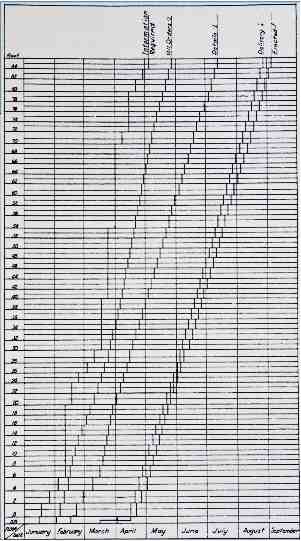I don’t consider myself a Toyota/Lean-expert, but there is an interesting saying that I have heard is used within Lean, “Plan Well to Execute Fast”. And that might sound very much like BD/PUF (Big Design/Planning Up-Front, if you didn’t get that…).
But isn’t this exactly what the Agile and Lean techniques are trying to help us with? We plan the days work carefully in the daily meeting, in the iteration planning we plan the content and do the design necessary to execute the stories fast.
I consider the view that you should plan before you do to be embraced by most people. If you do this you can focus on smaller pieces at the time and get more focused and efficient. The parallel with personal productivity techniques like Pomodoro and GTD are, to me, obvious.
“Waterfall” is a, failing, attempt to do the same thing. But it is not always easy (or good) to break down a complete project to tasks small enough that people can focus on them, particularly if you are not knowledgeable in the area (as the case usually is for a specialist in project planning). So “Plan Well” has been become one big plan/design/do-anything-as-long-as-it-is-not-real-work-phase before the real work can start. And for some areas it might still be necessary to do, if you are building a new factory plant for example.
But the trend seems to be clearly visible, that in many areas, the insight is spreading. It is possible, and often even very benefitial, to plan and design, and execute, a much smaller part of the work at a time. More opportunities to do it present themselves if you focus on a small change in the “product” that you are changing, instead of on the task and the “human resource” allocation. There are examples in building construction (all the way back to the early skyscrapers, picture is the steel delivery schedule of Empire State Building, with floors on the vertical axis), road and bridge construction, budgeting as well as in systems- and software development.
Companies and people that will not get this shift will be stuck in “waterfall”, “command and control” and “human resource allocation”, miss out on the financial survival advantages, and, like the dinosaurs, soon become extinct.
